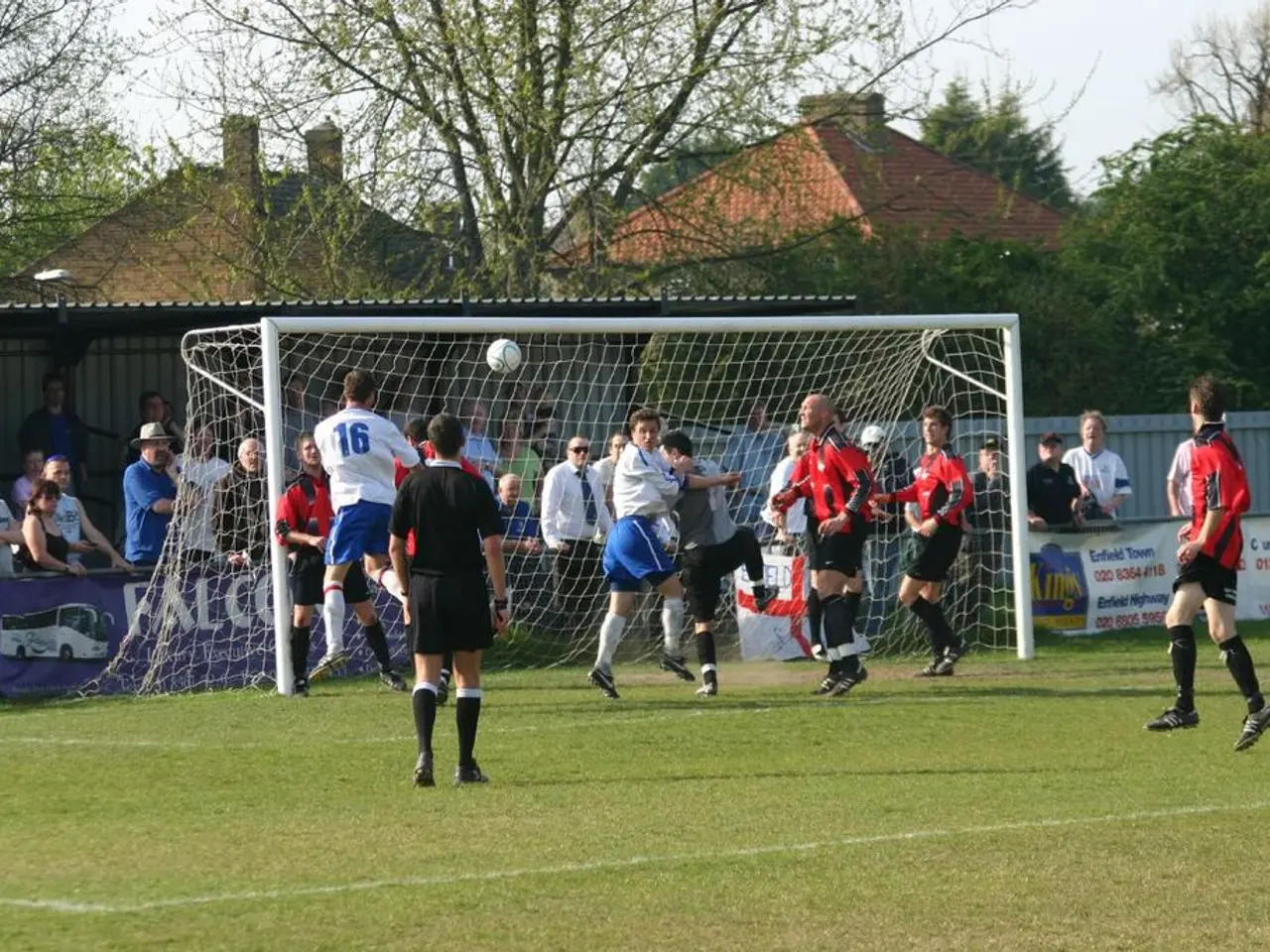Bayern's past leader, Rummenigge, discloses the plan for the club's reorganization.
Life on the Sidelines: Rummenigge's Observations on Bayern's Salary Woes
Karl-Heinz Rummenigge, Bayern Munich's former CEO, is keeping a close eye on the Club World Cup from afar. Though he's no longer in the thick of things, he still tosses around advice on transfers. But what truly haunts him? The extravagant player salaries, he confesses. "FC Bayern isn't impervious to those feelings," Rummenigge told "Die Welt am Sonntag", acknowledging the club's generosity in dishing out those hefty paychecks.
A New Dawn for Bayern's Finances
Max Eberl, the sports director, is slapped with the unenviable task of tightening the budget. Rummenigge reveals that Bayern is pondering a fresh salary structure, with 14 to 16 players commanding a "very commendable" wage. The rest of the squad is likely to be made up of young talent and a few lower-paid veterans.
Paris Saint-Germain, the Champions League champions, serve as the blueprint for this transformation. After bidding farewell to hotshots like Mbappé and Neymar, the French outfit overhauled their pay structure. As Rummenigge puts it, "change is a bloody game-changer, as we see with PSG."
Rummenigge points to Louis van Gaal, a former Bayern coach, as a shining example of a coach who shunned lavish transfers in favor of nurturing homegrown talent like Thomas Müller, Holger Badstuber, and David Alaba. Whether Bayern will follow suit remains to be seen. In the meantime, they're scouting several young players in the USA. Lennart Karl has particularly impressed.
x## The Art of Balancing the Books
The new salary structure at Bayern Munich entails a deliberate attempt to emulate Paris Saint-Germain's financial prudence. Bayern aims to decrease fixed salaries while still offering performance-based bonuses to keep morale high and talents motivated.
For instance, Leroy Sané, who pockets close to €20 million annually, is being offered a new contract with a substantial cut in his fixed salary to around €10 million gross, complemented by performance-based bonuses that could bump his total earnings up to approximately €14-16 million gross per year. This marks a considerable reduction in wages with performance incentives to boot[5].
Bayern's strategy echoes PSG’s approach of scaling back fixed salary costs, compensating with incentive-based payments, and maintaining a competitive payroll[3][5]. The club is also extending contracts for key players like Manuel Neuer, who banks around €21 million gross yearly, while favoring shorter-term deals and carefully managing the salary framework to secure long-term financial health[5].
All in all, Bayern's new wage strategy aims to:
- Slash fixed player salaries substantially (e.g., Sané's salary cut from €20 million to around €10 million fixed).
- Incorporate performance-based bonuses to supplement fixed wages.
- Prioritize financial stability by avoiding long-term expensive commitments.
- Imitate PSG's strategy of balancing wage cuts with incentive-based compensation[5].
This calculated move aims to maintain Bayern's competitive edge on and off the field while steering clear of financial pitfalls associated with exorbitant player wages[5].
Bayern Munich, under the guidance of their sports director Max Eberl, is striving to emulate the financial prudence of Paris Saint-Germain, the Champions League champions. This new strategy involves decreasing fixed salaries and offering performance-based bonuses as a means to balance the books. As an example, Leroy Sané, who currently earns close to €20 million annually, is being considered for a new contract with a substantial cut in his fixed salary to around €10 million gross, supplemented by performance-based bonuses that could raise his total earnings to approximately €14-16 million gross per year. This move mirrors PSG’s approach of scaling back fixed salary costs and compensating with incentive-based payments, all while maintaining a competitive payroll. Bayern also plans to extend contracts for key players like Manuel Neuer while favoring shorter-term deals and managing the salary framework for long-term financial health. The intention is to maintain its competitive edge on and off the field without falling into the financial pitfalls associated with excessive player wages.




